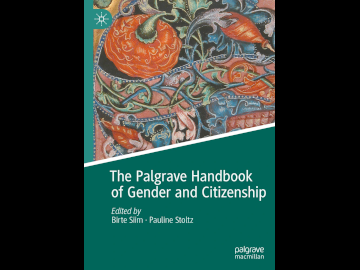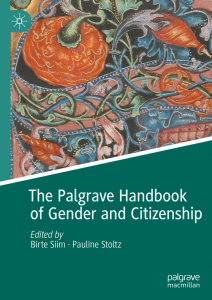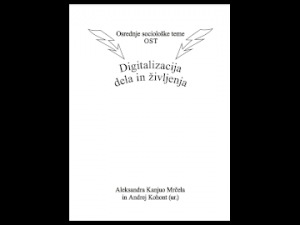Re-nationalizing Citizenship and Democratic Backsliding: Anti-gender Mobilizations in Central-Eastern Europe

 The recently published Palgrave Handbook of Gender and Citizenship (eds. Birte Siim, Pauline Stoltz) includes a chapter by Roman Kuhar and Mojca Pajnik on anti-gender mobilization in CEE, arguing that it represent a significant force in society’s illiberalization and re-nationalizing citizenship. The anti-gender movement effectively mobilizes individuals by exploiting concerns about the future, particularly regarding the family and nation. The chapter analyses how the movement promotes a retrotopian vision in which an idealized past is viewed as superior to the present through calls to return to traditional hierarchies. However, it is argued that such aspirations are ultimately unattainable and fail to address contemporary challenges. The chapter concludes by advocating for a focus on building a better future, necessitating a transformation of existing power structures associated with gender and national identity.
The recently published Palgrave Handbook of Gender and Citizenship (eds. Birte Siim, Pauline Stoltz) includes a chapter by Roman Kuhar and Mojca Pajnik on anti-gender mobilization in CEE, arguing that it represent a significant force in society’s illiberalization and re-nationalizing citizenship. The anti-gender movement effectively mobilizes individuals by exploiting concerns about the future, particularly regarding the family and nation. The chapter analyses how the movement promotes a retrotopian vision in which an idealized past is viewed as superior to the present through calls to return to traditional hierarchies. However, it is argued that such aspirations are ultimately unattainable and fail to address contemporary challenges. The chapter concludes by advocating for a focus on building a better future, necessitating a transformation of existing power structures associated with gender and national identity.
The handbook provides a comprehensive, interdisciplinary overview of key theoretical, analytical and normative approaches, topics and debates in contemporary scholarship about gender and citizenship. It demonstrates how diverse historical, social, political, economic and legal dimensions have shaped the evolution of gendered citizenship in different parts of the world, as well as how these dimensions transform the interrelations between individuals, social groups and communities across time, place and space.


